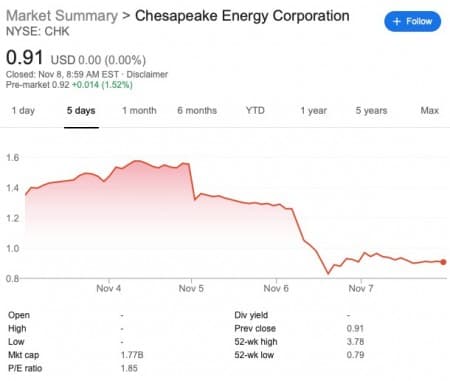Politics, Geopolitics & Conflict
- Trump has approved an expanded US military mission to secure Syrian oil fields after the abrupt withdrawal just prior to that. Under the new plan, US troops will protect a large swath of land previously controlled by Syrian Kurdish fighters that stretches nearly 90 miles from Deir el-Zour to al-Hassakah. Pentagon officials said that the revenue from oil fields will go to U.S. partner forces in the region and not the United States. On Thursday, ISIS targeted a fuel transport convoy in the Al-Raqqa Governorate as it traveled through territory controlled by the Syrian Democratic Forces (SDF). This is where it gets complicated. The SDF are largely Kurds - so these are the same allies that the US betrayed to a Turkish incursion and then brought back on board. Now, the Pentagon is saying that they are protecting the oil to give revenues to the SDF, which just prior to this was on the cusp of siding with the Assad regime, having no other choice under threat of a Turkish massacre. The other point here is that ISIS has not been destroyed in Syria.
- Round two of the ‘Arab Spring’ has now hit oil-rich Kuwait, with small but potentially threatening numbers of protesters lining up outside the Kuwaiti government headquarters. The protests are being spurred by corruption and poor delivery of public services. Demonstrators have called on Parliament Speaker Marzouq al-Ghanim to step down. Kuwait is the only member of the six-nation Gulf Cooperation…
Politics, Geopolitics & Conflict
- Trump has approved an expanded US military mission to secure Syrian oil fields after the abrupt withdrawal just prior to that. Under the new plan, US troops will protect a large swath of land previously controlled by Syrian Kurdish fighters that stretches nearly 90 miles from Deir el-Zour to al-Hassakah. Pentagon officials said that the revenue from oil fields will go to U.S. partner forces in the region and not the United States. On Thursday, ISIS targeted a fuel transport convoy in the Al-Raqqa Governorate as it traveled through territory controlled by the Syrian Democratic Forces (SDF). This is where it gets complicated. The SDF are largely Kurds - so these are the same allies that the US betrayed to a Turkish incursion and then brought back on board. Now, the Pentagon is saying that they are protecting the oil to give revenues to the SDF, which just prior to this was on the cusp of siding with the Assad regime, having no other choice under threat of a Turkish massacre. The other point here is that ISIS has not been destroyed in Syria.
- Round two of the ‘Arab Spring’ has now hit oil-rich Kuwait, with small but potentially threatening numbers of protesters lining up outside the Kuwaiti government headquarters. The protests are being spurred by corruption and poor delivery of public services. Demonstrators have called on Parliament Speaker Marzouq al-Ghanim to step down. Kuwait is the only member of the six-nation Gulf Cooperation Council (GCC) to have witnessed such anti-government protests.
- The U.S.-led naval coalition International Maritime Security Construct (IMSC) in the Gulf has opened a command center in Bahrain in response to a series of attacks on oil tankers.
Market Movers
- OPEC has lowered its oil demand forecast. By 2024, oil demand for OPEC-derived oil may fail to top 32.58 million bpd. This is no small matter, considering that OPEC had estimated last year that it would reach 35 million bpd by that time. Meanwhile, US production is still expected to rise. OPEC admitted that it would cede market share to the US, Brazil, Norway, and Kazakhstan in the coming years.
Deals, Mergers & Acquisitions
- Petrobras’ Nigeria assets that were looking to be snatched up by Vitol and Delonex in a $1.4 billion deal will now be purchased by Africa Oil Corp. Vitol and Delonex agreed a year ago to purchase Petrobras’ 50% stake in Netherlands-based Petrobras Oil and Gas BV (POGBV). The fields being discussed include the deepwater Agbami field, as well as the Akpo and Egina fields, which currently account for one-fifth of Nigeria’s total production. The assets that Africa Oil will purchase are operated by Chevron and Total. Neither Vitol nor Delonex offered any explanation for their pullout, although Nigeria’s oil and gas industry has suffered under the weight of local opposition, sabotage, and corruption, and the trend right now is divestment. The asset sale should help Petrobras to pay down its mountain of debt.
- South Africa’s national oil company PetroSA and Russia’s state geological Rosgeologia are closing a $359 million farm-out deal. If finalized, it would give Russia its first foothold in a prospective oil and gas field offshore South Africa. Negotiations are focused on Block 9/11A, adjacent to where French Total has made a huge oil and gas discovery with an estimated 1 billion barrels of total resources
- The US Bureau of Land Management will hold a lease sale in the National Petroleum Reserve-Alaska on December 11, offering up 3.98 million acres. There are currently 215 leases covering more than 1.5 million acres in this area. Several oil discoveries have been made in the area in recent years, and two small projects are now producing and two more are in development, all by ConocoPhillips.
- Norway’s Equinor sold its shale assets at the Eagle Ford shale formation to Spain’s Repsol for $325 million. Equinor’s equity production from the Eagle Ford averaged 43,000 barrels of oil equivalent per day (boepd) or 2% of its total global output in 2018. In a separate deal, Repsol also will acquire a 20 percent stake in Equinor's Monument prospect in the Gulf of Mexico. Exploration drilling is expected to commence by the end of this year.
Discovery & Development
- Norway’s Equinor has found a major deposit in the Fram oilfield in the North Sea, in what is one of the biggest discoveries of the year in the Norwegian Continental Shelf. The field is thought to hold between 38 million and 100 million barrels of oil equivalent. Along with being a sizable find, the field is located near other fields and infrastructure, making the costs relatively low for extraction.
- Cyprus has signed its first natural gas exploitation deal worth $9.3 billion with a consortium comprised of industry giant Shell, US-based Noble and Israel's Delek. The license is for the Aphrodite gas field, the first to be discovered off Cyprus, by Noble in 2011, estimated to contain over four trillion cubic feet of gas. Cypriot authorities have said that first natural gas will be extracted in 2025.
Regulations & Legislation
- Florida lawmakers gave unanimous approval to a proposal to ban fracking, despite objections from the state’s largest producer of oil and natural gas. The bill, which has been seven years in the making, would ban three practices that fracture or dissolve underground rock to allow access to deposits of oil or natural gas. Critics say there is ample evidence the practices pollute water and create conditions that cause earthquakes. There are currently seven active oil and gas fields in Florida, two in Santa Rosa County and five in Lee and Collier counties.
Earnings
- Probably the worst earnings rout this season has been Chesapeake Energy, whose Q3 results showed a loss that was deeper than expected and led to a share price plunge of nearly 42% in two days following the report. Chesapeake showed an adjusted loss of $188 million for the quarter on the back of lower production and lower nat gas prices. With things not as rosy as it had originally expected when setting 2020 spending goals, it is now adjusting that plan to spend between $1.3 and $1.6 billion next year, compared to last quarter’s estimate of $2.1 to $2.3 billion for 2020. They’re even talking about a potential default.


















